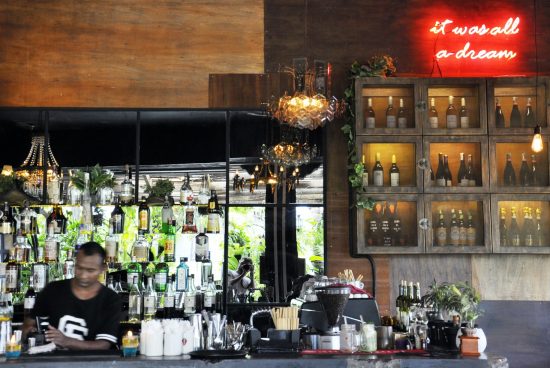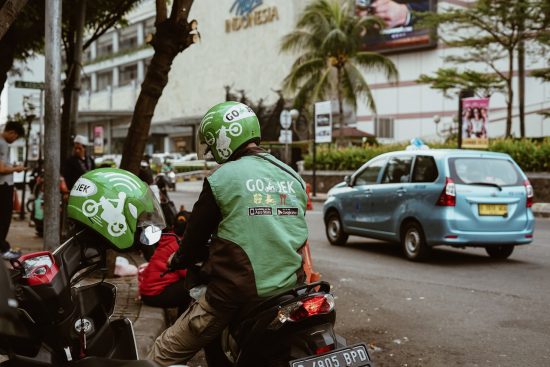
We continue our investigation into the growth of specialty coffee in Indonesia, and how it can set a tone for producing countries worldwide.
BY SUNGHEE TARK
SPECIAL TO BARISTA MAGAZINE ONLINE
Cover photo by Jeremy Bezanger for Unsplash
Yesterday we began a feature on specialty-coffee growth in Indonesia, and how domestic consumption could increase the overall value of the coffee chain. Today we continue to explore how that came about in Indonesia.
For specialty cafés in Indonesia, even a few years ago, you would mostly see imported coffees.
“Indonesia doesn’t have very strict importation regulations for coffee—quite different from other producing regions,” explains Indonesian barista champ Mikael Jasin. “Traditionally, specialty cafés only had non-Indonesian coffee—for example, beans from Panama, Brazil, Ethiopia, and El Salvador. Indonesian coffee with its taste and quality had not been historically as competitive in the market.”
Mikael also notes that because Indonesia is a country of islands, it sometimes is more cost-effective for a company to import coffees from outside the country than to buy from an Indonesian origin that is still miles away. Nevertheless, more recently, it has become more popular to have Indonesian coffee with the improved quality in its offering. “We’ve been seeing a slight shift in the offerings in these shops,” he says, also noting that this is partly due to coffee competitions.
Yet, most of the traditional coffee consumers in Indonesia do not brew coffee at home, nor do they frequent the specialty cafés as much. Rather, they consume iced and sweetened coffee from stalls and chain stores.
“I’d say the majority of the population drink coffee at cafés, or order them online,” Mikael says. While I had associated ordering coffee online as ordering whole or ground beans to brew at home, Mikael says that ordering online in Indonesia equates more to deliveries of ready-made drinks from cafés. These cafés may not serve strictly specialty-grade coffees, but are large outlets to coffee consumers in the country.
“They are a big part of what I think is the fourth wave of coffee in Indonesia. Massive iced coffee chains, serving slightly better coffees than commercial grade coffees. … And more notably, these companies who serve a large part of the population, are also starting to realize the importance of R&D and are investing in quality,” he says, hinting at the country’s likely bloom of the specialty-coffee market.

Impact of Competition on Specialty-Coffee Growth
As a coffee professional and crowned competitor, Mikael underscores the importance of competition in domestic coffee consumption in Indonesia and beyond. “Reflecting on my personal experience, I think it was only around 2018 that a lot more emphasis started to be given to the quality of coffee, especially Indonesian coffee,” he shares.
The Specialty Coffee Association of Indonesia (SCAI) created a mandate to use Indonesian coffee to qualify for regional competitions. According to Mikael, this pushed for a strong focus on quality Indonesian coffee.
“This motivated both baristas and producers alike. We also identified the room where we could do better to improve the outcome,” states Mikael. “I started competing in Indonesia in 2018 and started working closely with producers to directly support them in improving the quality of their coffee lots—to be competition-ready, but also to make sure these coffees could be introduced to audiences in Indonesia and elsewhere.”
The growing ease in communication between consumers and producers has fostered the improvement in coffee offerings from Indonesian origins. The recent global attention that Indonesian coffee has received has also fueled domestic audiences’ interest in Indonesian coffee. However good the outcome was in fueling the domestic audiences’ interest in high-quality Indonesian coffee, both Mikael and I agreed from our personal experiences that it is an unfortunate narrative that we see in societies that equate Western acceptance with “the good.”

Tech Unicorns for Coffee in Indonesia
It is hard to imagine the rapid growth of the coffee market in Indonesia without the high-value technology start-ups in the country, especially during the pandemic. As café operations became challenging during the pandemic, these cafés could count on reliable and accessible tech platforms to meet the growing needs of the consumers.
In Indonesia, there are a handful of unicorn start-ups that have served as online marketplaces—think Amazon, but way faster. For instance, if you order a product on Tokopedia or Gojek—online platforms where people sell anything from paper clips to cars—you can get products delivered within three hours. The sites are reported to have over 100 million active users, and anyone living in major cities in Indonesia would use them.
Mikael tells me that “around the time when the coffee industry was growing in Indonesia, these two companies [Gojek and Tokopedia] were also on the rise. These platforms enabled everyone in the country to enjoy the same type of coffee that was enjoyed in big cities like Jakarta. This also meant that cafés in remote locations could reach much of the population.”
Through the rapid shift in the economy and the industry, it is hard to pinpoint exactly how the development would look for any sector. However, it may only be a matter of time until we hear about the influence of the Indonesian domestic coffee market in shaping the global coffee value chain.
ABOUT THE AUTHOR
Sunghee Tark (she/her) is the co-founder of Bean Voyage, a feminist organization that collaborates with smallholder womxn coffee producers to build an equitable coffee value chain. She is also a freelance coffee writer, Specialty Coffee Association LEAD Scholar, and Re:Co Fellow.

